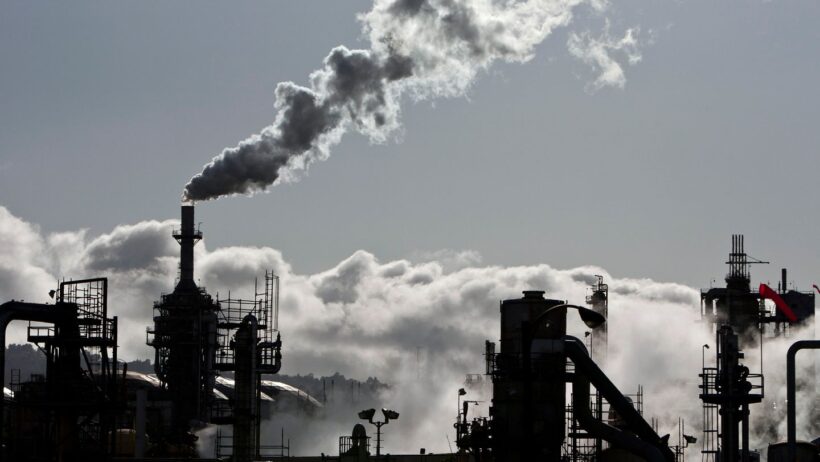The discourse surrounding climate change often provokes passionately divergent viewpoints. In particular, the idea that reducing fossil fuel consumption could somehow exacerbate global warming sparks interest and controversy. This phrasing may seem counterintuitive, akin to suggesting that dousing a fire with water could cause it to blaze. Yet, the interplay of climate systems is complex. A careful dissection of this assertion can illuminate the intricacies involved.
First, it is essential to understand the fundamental role fossil fuels play in our current energy landscape. Fossil fuels—coal, oil, and natural gas—have been the bedrock of industrialization, powering economies and facilitating societal advancements. Nevertheless, their combustion releases carbon dioxide (CO2) and other greenhouse gases that create a blanket around the Earth, trapping heat and elevating global temperatures. The case for reducing fossil fuel dependency revolves around mitigating these emissions. However, the argument that such reductions could paradoxically lead to higher temperatures invites scrutiny and examination.
At the crux of the issue is the concept of atmospheric feedback loops. When we reduce fossil fuel usage, there is a potential for a decrease in cooling aerosols—small particles released during combustion processes that can reflect sunlight away from the Earth. These aerosols serve as a natural counterbalance, deflecting some of the incoming solar radiation. Consequently, the reduction of such aerosols, without an immediate alternative cooling mechanism in place, could theoretically result in a net warming effect in the short term. This relationship highlights the delicate equilibrium within the climate system, resembling a meticulously balanced scale that could tip with even minor adjustments.
Furthermore, transitioning away from fossil fuels necessitates a robust alternative energy infrastructure. The challenge lies in ensuring that this transition does not result in larger environmental footprints. For instance, increased reliance on certain renewable sources may entail secondary emissions. If these emerging technologies, such as solar panels or wind turbines, are produced through intensive manufacturing processes that generate substantial carbon outputs, the net benefit of reducing fossil fuel consumption could be undermined. It is akin to replacing polished silverware with stainless steel cutlery; although aesthetically different, one may not always consider the hidden environmental costs of production.
The dynamic nature of energy markets also contributes to the complexity of this issue. A rapid transition away from fossil fuels could induce price volatility, affecting the availability and affordability of energy. Such economic repercussions can propel higher energy costs, forcing consumers and businesses to revert to cheaper fossil fuel options. This cyclical pattern resembles a rubber band; when stretched too far, it snaps back, reinforcing dependence on fossil fuels rather than promoting sustainable alternatives.
There is also the matter of international relations and the geopolitical landscape. Countries that derive significant portions of their income from fossil fuel exports might resist concerted global efforts to reduce carbon emissions. This resistance can lead to political and economic instability, potentially derailing international climate agreements. The specter of climate change, thus, becomes entangled within the intricate web of global diplomacy, akin to navigating a treacherous maze with shifting walls and unseen traps.
Moreover, time scales add another layer of complexity. While the immediate effects of reducing fossil fuels may present mixed results, the long-term consequences provide a compelling argument for continuing along the path of sustainability. The long-term trajectory of climate stability implies that the cumulative benefits of reducing fossil fuel use will outweigh any short-term repercussions. Thus, when viewed through the appropriate temporal lens, the vision of a fossil-free future shines clearly, resembling a mountain peak obscured by fog, but promising breathtaking vistas upon ascension.
It is worth noting that scientific consensus holds firmly against the notion that reducing fossil fuels could lead to global warming in any significant or lasting way. While nuanced discussions about aerosol effects do have merit, the overwhelming evidence suggests that the long-term benefits of reducing greenhouse gas emissions far outweigh episodic deterrents. The pressing need to curb global warming emerges not just from an environmental imperative but as a moral obligation to safeguard future generations and the planet itself.
In conclusion, the idea that reducing fossil fuel consumption could somehow exacerbate global warming serves as an intriguing entry point into the complexities of climate science. The intricate dance of feedback loops, alternative energy sourcing, economic consequences, geopolitical dimensions, and time scales contribute to a narrative that is ever-evolving. Yet, the imperative to mitigate climate change orchestrates a powerful symphony that calls for action and a reexamination of our energy paradigms. The future rests not in the fossilized remains of yesteryear but in the innovation, resilience, and adaptability we cultivate today. Only through concerted global efforts can we hope to silence the cacophony of doubt and usher in an era defined by environmental harmony.







